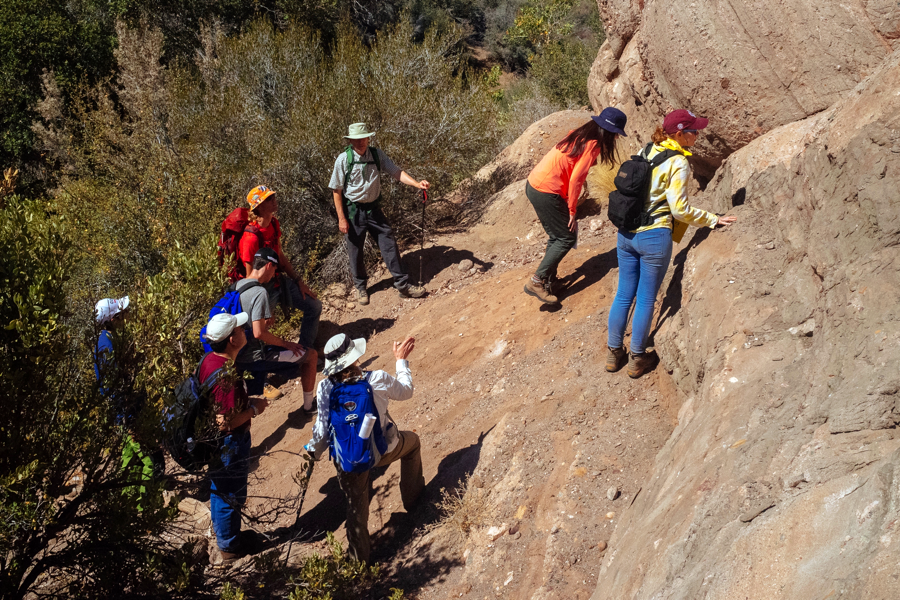All Categories
Featured
Table of Contents
What's The Difference Between A Geotechnical And ... in Maddington Australia 2021
This work is progressively contracted out, so consultancies supply another source of work. Consultancy companies vary in size, from very small business to big multinationals. Some consultancies are rather specialised in utilizing particular geophysical methods or working in specific areas, while others provide a more diverse variety of services to their consumers.
The extraction of gas from landfill websites is another area of employment and this might grow in the future. Exploration business might carry out work for building companies, water companies, mining business and ecological agencies, so geophysicists may be utilized in any of these settings. Other employers consist of: geological surveysgovernment bodies and agenciesuniversities and research institutes.


Jobs may be noted in the oil and gas sector press. Recruitment is impacted by oil cost changes and the level of competitors for positions differs depending on this. Professions Days, which cover the complete range of geoscience careers and are usually gone to by a number of essential industry companies, are run by The Geological Society.
Geophysics, Engineering Geophysics And Applied ... in Rossmoyne Oz 2023
Some of the large oil and gas companies provide a full two-year structured training programme throughout the breadth of geophysics, consisting of the opportunity to experience work in numerous groups before specialising in one location. Your training might consist of work on: existing wellsmagnetic and gravitational possible field information analysisresearchrock analysis. However, it's more typical for your initial training to be offered on the job.

There may be a probationary duration throughout which you work together with a knowledgeable coworker. Competency-based appraisals take location frequently in most firms. In smaller companies, and for scholastic posts, there is not likely to be any official training - you'll be anticipated to start work straightaway and get skills as you go along.
If you work for a smaller sized business, you may discover that you need to take obligation for arranging and moneying your own development and training. If you have a geology degree, membership of The Geological Society can be helpful for networking and for maintaining to date with the market.
What Can I Do With A Major In Geophysics? in Bull Creek Australia 2020
You may also find it helpful to sign up with the PESGB (The Petroleum Expedition Society of Great Britain, which has a geophysics unique interest group. After a probationary period, and when you've gained some experience, you could advance to senior geophysicist, then team leader and then into a senior function in management.
The ease of motion between functions depends upon the business structure. Research study at Masters or Ph, D level in a subject associated to geophysics or geosciences might assist with your career development and development. The work market within the oil and gas market is extremely depending on rate and this might impact your chances for profession development.
Nevertheless, not all tasks depend on the oil and gas industries. For experienced geophysicists, freelance consultancy provides a great route for career advancement. You can likewise specialise in a particular location of geophysics. As a geophysicist, you're most likely to have several tasks throughout your working life. International movement is essential for handling peaks and troughs in various nations at different times.
Geophysical Surveys: Definition & Methods in North Lake Western Australia 2020
From geophysics, it's possible to concentrate on seismology (completing more training to end up being a seismic interpreter) or to move into related locations such as engineering geology or threat forecast.
Deciding what to study in college is a difficult choice. Even if you know that your field of interest lies in science, what program of study is ideal for you?
The first step to accomplishing your objective of becoming a geophysicist is earning a degree. Even for entry-level positions in the field of geoscience, you'll require a bachelor's degree (a geophysicist college degree) from an accredited college or university. Geophysicists must be able to: examine rocks, pictures, and other pieces of data carry out research both in the field and in labs produce maps and charts of their findings compose reports To achieve all this, trainees need a specialized education for geophysicist professions.
As stated above, you'll require a bachelor's degree in geoscience or an associated discipline, such as a physical science or a natural science, to land an entry-level task. However trainees can also prepare by majoring in topics like: Biology Chemistry Computer technology Engineering Mathematics Physics The above geophysicist majors use a more generalized technique to a single scientific discipline, however a lot of programs need trainees to take one or more geology course.
Table of Contents
Latest Posts
Geophysical Survey - Mining Fundamentals in Mahogany Creek Aus 2023
How To Become A Geophysicist in South Fremantle Oz 2022
Field Geophysicist - Parsons Careers – Engineered Systems in Ballajura Aus 2021
More
Latest Posts
Geophysical Survey - Mining Fundamentals in Mahogany Creek Aus 2023
How To Become A Geophysicist in South Fremantle Oz 2022
Field Geophysicist - Parsons Careers – Engineered Systems in Ballajura Aus 2021